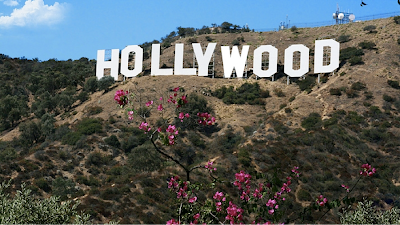I feel like I’m struggling. Getting a fair number of film auditions, but not nailing as many roles as I should. Actors get a lot of advice when this happens, most of it vague and unhelpful.
- You need to make bold choices (whatever that means).
- Don’t rush your lines (but, on the other hand, avoid melodrama).
- Just react (even if your scene reader is giving you dead lines).
- Be the most interesting version of yourself (even if you got into acting because you don’t think you’re all that interesting).
- Do it large (the director can ramp you down).
- Don't do it large (they'll take you for a stage actor).
- And (least valuable of all) if you didn’t get the part it’s not your fault; it’s because of a whole laundry list of reasons unrelated to how you did.
A film audition typically involves the barest summary of the story line and where your character fits. The sides you’re sent to read could be satire, drama, farce….the words themselves don’t necessarily tell
you. If you’re auditioning for a small, day-player role in a big production, there won’t even be a character description, only a random title, such as “clerk #1.” This leaves you agonizing over those few lines and how to deliver them in the scene, because the director - who has bigger fish to fry - is not about to be bothered with any questions from you about your clerk character’s "motivation."
So I’ve been wondering if there isn’t a more nuts and bolts way of getting into a character, particularly for auditions, that would work under any circumstance…some general jumping off place.
Years ago, when I was working as a publicist for a Washington think tank, one of my tasks was to get the op-eds of young policy analysts published on the editorial pages of national newspapers.
The problem was, they didn’t know how to write op-eds. They were used to expressing their thoughts in 20 pages or more, not in 500 words or less. Telling them to focus tightly and to get to the point was about as helpful as saying “make bold choices.”
Well, I’m a problem-solver, and one day I sat down and spread out a half dozen published op-eds that seemed to be well-written and to the point, and I asked myself, what do these pieces have in common in terms of structure? What kinds of information do they convey and where in the piece do they convey it?
It was a very mechanical way to go about it, but I found that – structurally – the op-eds did indeed have much in common. I started taking notes and I found that I was able to develop an outline for one approach to an op-ed that said this is the kind of information you put in paragraph one, this is what you put in paragraph two, etc. I can't say it was the best way to write an op-ed, and it certainly wasn't the only way. But following that outline, my young policy analysts started getting published and eventually they developed a style and approach to writing these kinds of pieces that was all their own. The point was to first find a way for them to succeed and with some regularity.
So what I’ve been asking myself this past week is whether it’s possible to approach acting in that same way? To benefit by looking solely at what successful (even legendary) actors do in a scene, without necessarily understanding why they do it that way? Just the mechanics. Just a jumping off place.
I'm already seeing some commonalities. Maybe there is indeed something there.
UPDATE: OCTOBER 30, 2013
I've been watching films, including
The Best Exotic Marigold Hotel (because there are so many great British actors in it) and the quintessentially American
Dr. Strangelove. I'm going to be researching the British approach to acting, which I believe is quite different from the American way. But for now, this is what I'm seeing in both kinds of films:
Line Delivery
1.
Classically trained actors enunciate. You can understand every word.
2.
In a dialogue, classically trained actors hold their gaze/expression still while the other actor is talking. When the camera turns on them, they think their words, take some action/reaction, and then they speak their words.
3.
Classically trained actors pause – A LOT!
- They make a slight but distinct pause between sentences.
- They pause before dependent clauses introduced by prepositions.
- They pause before and between lists of things.
- They pause after interjections: “of course,” “actually,” “nevertheless,” etc.
- Before emphatic descriptions and declarative statements.
- For thoughtful emphasis, they pause between nouns and verbs.
- They use pauses to breathe and to think the words of their next line.
4.
They repeat words (stammer) to convey urgency/anxiety/doubt.
5.
They hold their gaze at the end of a scene unless directed otherwise. (The editor will love you for that!)
Movement
1.
In long scenes, classically trained actors find some prop that they might logically pick up and have in their hand, which avoids random arm-waving while talking. (See George C. Scott fiddling with the gum package in the war room scene in Dr. Strangelove.)
2.
If the scene seems to call for them to bend over to do something at the end of a scene, they fiddle with the prop and stay in frame instead (click/screw pen, feel edge of axe) unless directed otherwise.
3.
Classically trained actors are not afraid to put their hand(s) to their face and to cover all or part of their face while talking.
4.
They tap fingers rapidly to convey anxiety (on table, in palm, on ribcage, etc.)
5.
They indicate for emphasis. i.e. they went that-a-way (point).
I will add to this as I see more.....































